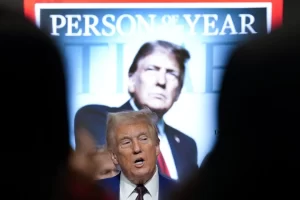Sentenced for Shootings: Understanding Legal Consequences and What It Means for Offenders
When a person is sentenced for a shooting, the outcome largely depends on the specifics of the crime. Whether the offense is intentional or accidental, and whether it results in injury or death, will significantly impact the legal proceedings and sentencing. Sentences for shootings can range from minor penalties to life imprisonment, depending on a variety of factors, including the charges, the circumstances surrounding the shooting, and local laws.
In this article, we explore the different legal consequences of shootings, explaining what leads to harsher sentences, the factors that might mitigate the severity of penalties, and the role of the judicial system in determining an offender’s fate. By understanding the nuances of the law, individuals can gain a clearer view of how shootings are prosecuted and what factors influence sentencing decisions.
The Role of Intent in Shooting Sentences
One of the most crucial factors in determining a sentence for a shooting is the intent behind the act. Intent is what separates a murder charge from a manslaughter conviction. If a shooting was premeditated, meaning the shooter planned the attack in advance, the punishment is likely to be severe, potentially leading to life imprisonment or even the death penalty in certain states.
On the other hand, if the shooting occurs in the heat of the moment or due to negligence (for example, a person accidentally firing a weapon), the sentence might be less severe. This could result in a conviction for manslaughter or an assault charge. Sentences for unintentional shootings typically carry lesser penalties than those for murder but can still lead to years in prison.
Aggravating and Mitigating Factors
Several other factors can influence the length of the sentence for a shooting, including aggravating and mitigating circumstances.
- Aggravating factors are circumstances that make the crime more severe and often lead to harsher sentences. These can include:
- Shooting with a firearm during the commission of another crime (e.g., robbery, assault).
- Shooting a law enforcement officer or public figure.
- Repeated offenses, where the offender has a history of gun violence.
- Mitigating factors, on the other hand, may reduce the severity of the sentence. These can include:
- First-time offenders who show remorse for their actions.
- Mental illness or diminished capacity at the time of the crime.
- Self-defense: If the shooter can prove they were acting in self-defense or to protect others, the charges may be dropped or reduced.
Understanding these factors is essential, as they play a significant role in the determination of a fair and just sentence.
Self-Defense and the Right to Bear Arms
In some cases, shootings are justified under the law if the person was acting in self-defense or defense of others. For example, if someone is attacked in their home, they may be legally permitted to use deadly force to protect themselves. In such cases, the stand your ground laws or castle doctrine (which varies by state) may come into play.
However, even in self-defense situations, the shooter may still face legal challenges. The court will carefully evaluate the circumstances, including whether the threat was imminent and if the force used was proportional to the danger posed. If the shooting is deemed excessive or unreasonable, the individual could still be charged with a criminal offense, even if self-defense was initially claimed.
Consequences of Firearm-Related Crimes
The type of firearm involved also plays a role in sentencing. For example, using an automatic weapon or a weapon that is prohibited by law can increase the severity of the charges and result in a longer prison sentence. Unlawful discharge of a firearm or possession of a firearm by a felon can also carry significant penalties, especially in states with strict gun control laws.
Additionally, many states impose mandatory minimum sentences for crimes involving firearms, meaning that even if the judge wants to give a lighter sentence, they may be limited by state law. This is particularly true in cases where the shooter is convicted of multiple charges, such as aggravated assault or reckless endangerment.
Conclusion: What to Expect from Sentences for Shootings
Ultimately, sentences for shootings depend on the details of each case. From the level of intent to the type of firearm used, and from the presence of mitigating or aggravating factors, a wide range of variables can affect the outcome. Those facing charges for shootings should seek legal counsel to understand their rights and the potential penalties they may face based on their specific circumstances.
In all cases, the law aims to ensure that justice is served in a way that protects the public while fairly considering the actions and motivations of the individual involved. The sentencing process can be complex, but with the right legal guidance, it is possible to navigate these difficult situations.

